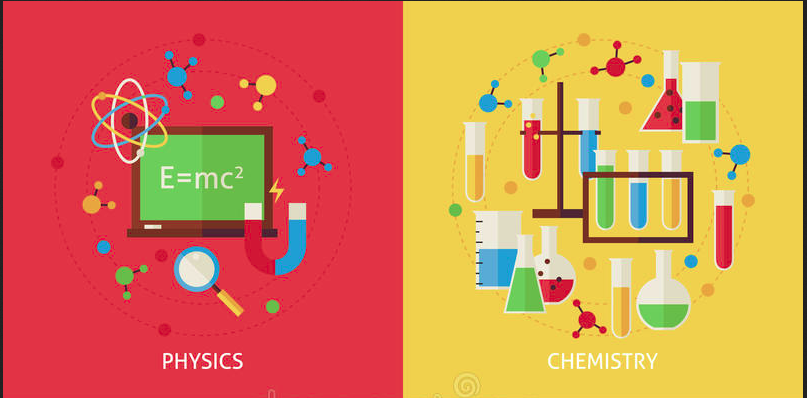
“Chemistry is the study of matter, its properties, and interactions with other matter.”
John Dalton
General description
Chemistry is the study of change.
Aristotle
Chemistry is the branch of science that deals with the properties and interactions of matter. Chemistry is a very important part of our everyday lives. It is the study of the composition, structure, properties, and behavior of matter.
Chemistry is all around us. It is in the air we breathe, the water we drink, the food we eat, and the clothes we wear. It is also in the things we use everyday, such as our cars, computers, and phones. Chemistry is a part of everything in our world.
It is the study of the composition, structure, properties, and behavior of matter. Matter is anything that has mass and takes up space. Chemistry is concerned with the atoms that make up matter and the interactions between those atoms.
Atoms are the basic units of matter. They are the smallest particles of an element that have the chemical properties of that element. Atoms are made up of protons and neutrons in the nucleus, with electrons orbiting around the nucleus.
The protons and neutrons in the nucleus are held together by the strong nuclear force. The electrons in the orbit around the nucleus are held by the electrostatic force. The electrostatic force is the force that holds electrons in their orbit around the nucleus.
The behavior of atoms is determined by the number of protons in the nucleus. The number of protons in the nucleus determines the element. The number of protons in an element’s nucleus also determines the element’s chemical properties. The chemical properties of an element are determined by the number of protons in the nucleus. The number of protons in an element’s nucleus determines how the element will react with other elements.
Chemistry’s Subdisciplines

Jabir’s works contain the oldest known systematic classification of chemical substances ; Wikipedia
Chemistry is divided into several subdisciplines, each of which focuses on a particular area of study.
Analytical chemistry is the study of the separation, identification, and quantification of the chemical components of matter. In other words, it is the analysis of materials to determine their chemical composition. This sub-discipline of chemistry uses many different techniques, including chromatography, spectroscopy, and mass spectrometry, to study the chemical makeup of substances.
Inorganic chemistry is the study of the properties and reactivity of inorganic compounds. These are compounds that do not contain carbon-hydrogen bonds. Inorganic chemistry covers a wide range of topics, from the study of the elements and their compounds to the synthesis of new inorganic materials.
Organic chemistry is the study of the structure, properties, and reactivity of organic compounds. These are compounds that contain carbon-hydrogen bonds. Organic chemistry is a very important sub-discipline of chemistry, as it plays a vital role in the pharmaceutical, food, and petrochemical industries.
Physical chemistry is the study of the physical properties of chemical substances. This sub-discipline of chemistry uses the principles of physics to study the behavior of matter on a molecular level. Physical chemistry is a very important sub-discipline of chemistry, as it plays a vital role in the development of new materials and in the understanding of chemical reactions.
Biochemistry is the study of the chemical processes that occur in living organisms. This sub-discipline of chemistry covers a wide range of topics, from the study of the structure and function of biomolecules to the study of the chemical reactions that occur in cells.
Environmental chemistry is the study of the impact of chemicals on the environment, including the pollution of air, water, and soil.. This subdiscipline of chemistry covers a wide range of topics, from the study of the effect of pollutants on the environment to the study of the role of chemicals in the Earth’s climate.
Nuclear chemistry is the study of the properties and behavior of radioactive elements, such as the nuclear reactions that power nuclear reactors and the nuclear bombs that were used in World War II.
Materials science is the study of the properties of materials. This interdisciplinary field of science combines the principles of physics, chemistry, and engineering to study the structure, properties, and processing of materials.
Chemistry vs Physics

The two sciences are very similar, but there are some important differences. Chemistry is more focused on the properties of matter, while physics is more focused on the behavior of matter and energy.
Physics is more mathematical than chemistry. Chemistry is more concerned with the structure of matter, while physics is more concerned with the behavior of matter and energy. Physics is more abstract than chemistry. Chemistry is more concerned with the physical world, while physics is more concerned with the theoretical world.
What are the most important open questions in Chemistry ?

Nothing is lost, nothing is created, everything is transformed
Antoine Lavoisier
The most important open questions in Chemistry include:
- What are the fundamental principles that govern chemical reactions?
- How can we better predict the outcomes of chemical reactions?
- How can we design more efficient and environmentally friendly chemical processes?
- How can we develop new and improved materials with desired properties?
- How can we better understand and utilize the properties of existing materials?
- How can we develop new and improved methods for detection and analysis of chemical substances?
- How can we better understand the role of chemistry in biological systems?
- How can we develop new and improved methods for synthesizing and processing chemicals?
